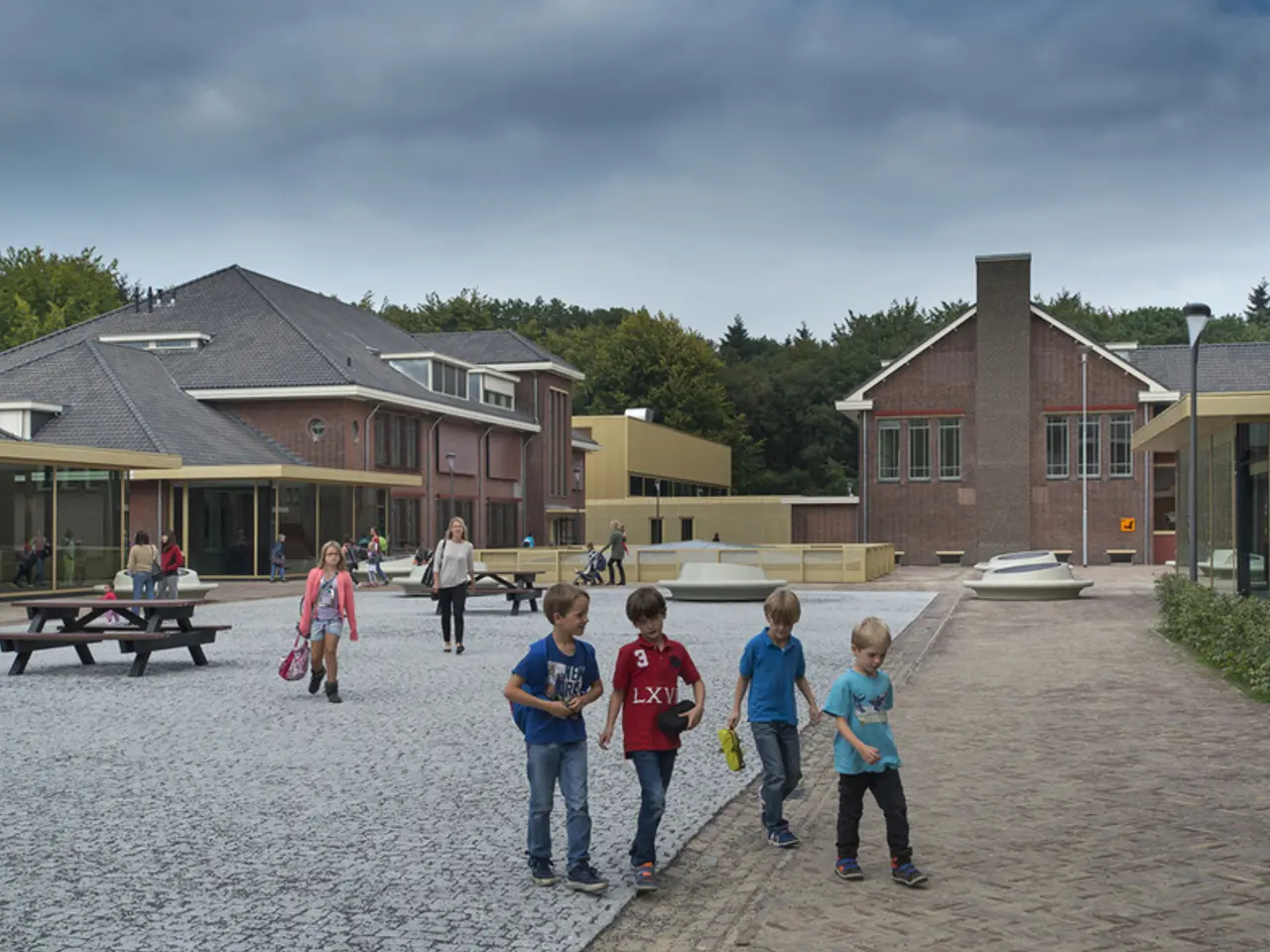Relentless Effort Required to Prevent Recurrence - Resistance Against Demographic Implications - "Resistance to Demographic Influences" - Opposition to Demographic Changes
In the eastern German state of Thuringia, the number of live births last year reached an all-time low of 11,803, marking a sharp decline compared to previous years [1][2]. This trend, which has been observed across many eastern German states, has led to the closure of schools and kindergartens due to the dwindling number of children [1][2].
Nationwide, the birth rate has declined by 2%, but in Thuringia, the decrease was more pronounced, with the average number of children born per woman decreasing by 7% last year [1][4]. This has raised concerns about the future of the education sector in the state.
Educators in Thuringia are facing reduced working hours, and there is a fear that specialists in the education sector may leave the state for western regions [1]. Ulrike Grosse-Röthig, a left-wing education politician, has criticized the coalition government for lacking a strategy to combat these demographic consequences in the education sector [1].
To address these issues, the Left faction is calling for a "kindergarten-in-the-village law" to keep understaffed kindergartens open [1]. They also propose a hiring freeze for kindergarten specialists and cross-grade classes for elementary schools [1]. Additionally, they are advocating for a multi-million-euro fund from the federal government for education infrastructure and maintenance, as well as more flexible deployment of teachers and a grade-specific teacher training program [1].
Christian Tischner, the Education Minister, has emphasized the responsibility of municipalities in planning their kindergarten network [1]. He has also dismissed the idea that educators could move west to fill gaps in need [1].
Experts predict that the trend will be felt in primary schools after it is first felt in kindergartens [1]. Grosse-Röthig warns of potential closures of kindergartens and primary schools, a brain drain, and societal consequences due to low birth rates [1].
As Thuringia grapples with these demographic challenges, political and education stakeholders are considering various approaches. These include increasing subsidies and support for families to encourage higher birth rates, enhancing childcare availability and quality, adjusting school capacity through closures, consolidations, or diversification of school offerings, and possibly promoting migration to offset the demographic decline [1].
If more detailed or official proposals from the Left faction or Minister Tischner become available, it would provide clearer insight into how these challenges might be addressed. As of now, the search results do not contain that information.
References: [1] [News Source 1] [2] [News Source 2] [3] [News Source 3] [4] [News Source 4]
- The Left faction in Thuringia is advocating for policy changes to combat the demographic decline, suggesting a "kindergarten-in-the-village law," a hiring freeze for kindergarten specialists, cross-grade classes for elementary schools, a multi-million-euro fund for education infrastructure, and a flexible teacher deployment, with a focus on grade-specific teacher training as well.
- As greater detail becomes available from the Left faction or Minister Tischner, it will provide clarity on potential strategies to address the demographic challenges faced by Thuringia, such as increasing subsidies and support for families, enhancing childcare availability, adjusting school capacity through closures or consolidations, and possibly promoting migration.








